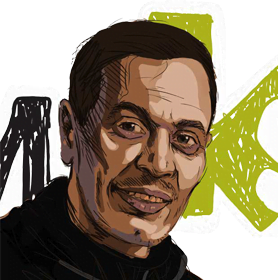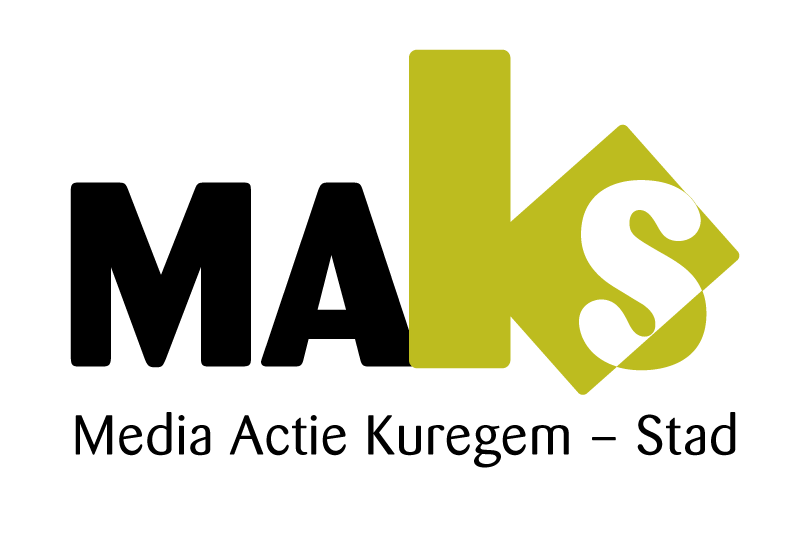‘A year full of challenges, but also full of opportunities’

I think like in many other sectors, it was a very difficult year. We were fortunate to be able to continue working, yet we were without customers for several weeks, if not months. From one day to the next, we had to stop operating normally. All activities and training were temporarily suspended. I think it was a particularly difficult year for our customers. They had to put up with a lot, just like our colleagues.
How have our colleagues dealt with this situation?
There was a lot of fear and anxiety. At first, when the possibility of a lockdown was announced, we thought we would lose our jobs. That was very real at the time. We are a non-profit organisation, we have to fight to get grants, and that is already a challenge in normal circumstances. Our colleagues handled this incredibly well, and with time, the distress wore off.
What was the impact of our adjusted operation for our customers?
We tried to be as accessible as possible, although that may have been insufficient. Specifically, we opened a communication line under the name “Maks SOS PC” where people could call us and we would take turns answering questions or trying to solve problems. We also tried to set up a kind of online Open Studio, but this project did not work too well. For the students, we opened the Excelsior Hall, a large party room, to accommodate a maximum number of young people in safety so they could study quietly. 55 tablets were also prepared for use and installed in retirement homes. So despite the circumstances, we tried to remain active and accessible in the neighbourhood.
What developments have happened in terms of courses?
Unfortunately, we have had to cancel or reschedule many of our in-house courses because our target audience does not have much digital knowledge. Taking this into account, offering online courses seemed to us to be of limited use to our target audience. In terms of external collaborations, we had the opportunity to run courses for Bruxelles Formation. Fortunately, we were able to teach a few weeks of this course with physical presence, giving these students the necessary skills to continue the course online when the lockdown began. These first weeks of in-classroom teaching proved essential; if we had to teach exclusively online, it would be extremely stressful for our target audience who have limited digital knowledge. As part of this course, we were also able to lend computers to our students, a great opportunity for which we received a lot of gratitude. In the end, it turned out to be a chance for us, as well as the trainees, to discover several new online tools and turn this into an opportunity for continuous training. For our clients, online courses initially caused a bit of panic or anxiety. But afterwards, it turned out to be a good opportunity for all of us to immerse ourselves in these new tools that will be used more and more in the future. It has encouraged us to increase our knowledge of online alternatives and solutions that do not make people drop out or create fear.
What was the most popular course this year, and why?
I would say all our courses are popular, everyone has a preference. Again, I refer to the course developed in partnership with Bruxelles Formation: Parcours d’initiation bureaucratique et certification TOSA. This course continued twice this year. I think it is so popular because there is an underlying motivation: passing the TOSA test and getting certified. We really want as many participants as possible to pass this test. We put a lot of resources into this and it shows in the results: most of the students effectively passed their tests.
What does the TOSA test involve?
In short, that certificate is similar to a driving licence, but for computers. It is just like driving school, you make an appointment at a certified centre where PCs are available and take your exam. It is a test of a thousand points. We have an agreement with Bruxelles Formation that our clients must pass at least 350/1000 to succeed. Something we believe is certainly achievable. This test is a great opportunity, it gives more motivation, and it could also be a good tool for us. We have also organised “Initiation à l’informatique et à la recherche d’emploi” courses, which also give access to the TOSA test.
Finally, a look ahead: what will 2021 bring for Maks Adults?
I hope the lockdown will at least be a little relaxed… In terms of Maks’ objectives, we should try to gather as many tools as possible to make e-learning accessible, to be as active as possible in the neighbourhood, and to help as many people as we can. The current situation is serious. Many people lost their jobs. We are still on the first line, which is where we belong. I think it is important that we are there to support and to show our presence, even if it is not necessarily in the form of a computer course.
Can you sum up 2020 in a few words?
As hard as it is sometimes, we must try to stay positive. What we experienced this year, we have never experienced before. The year has been overshadowed by COVID. Our society was turned upside down. Our society was upside down. It is time to reflect on the future. I am aware of how lucky I was to have been able to continue my work, which is no longer the case for many of us. I see our managers fighting to keep going. For example, they asked for an exception from the mayor of Anderlecht to be able to keep our accessible computer rooms open, making us the only available computer room in Brussels. So for 2021, I really hope the situation will improve and we can continue our work.
We are a non-profit organisation, we have to fight to get grants and that is already a challenge in normal circumstances
YOUSSEF LAAKEL
Coach & multimedia teacher
